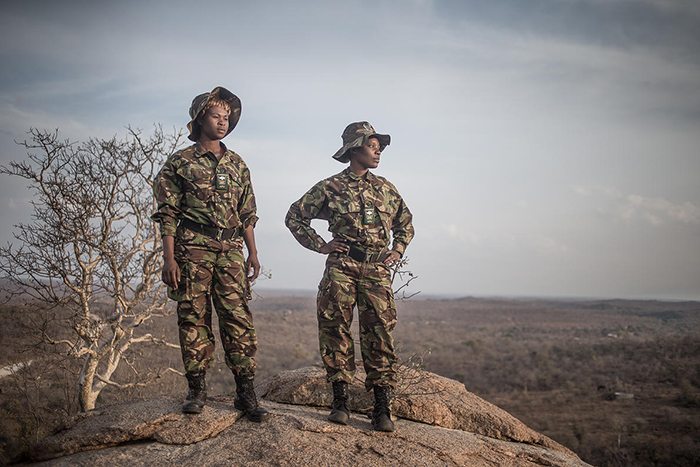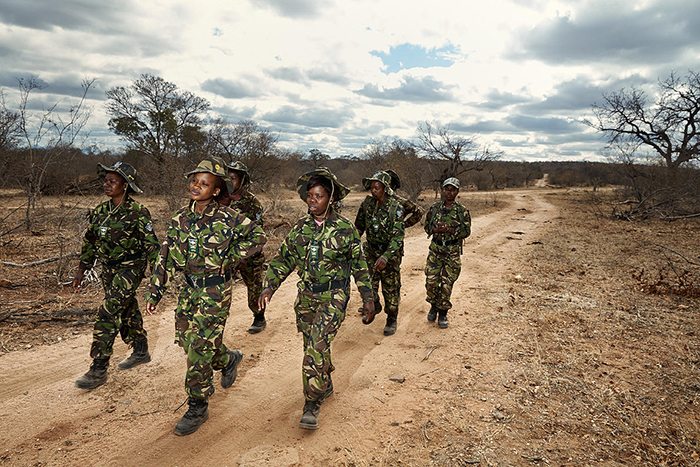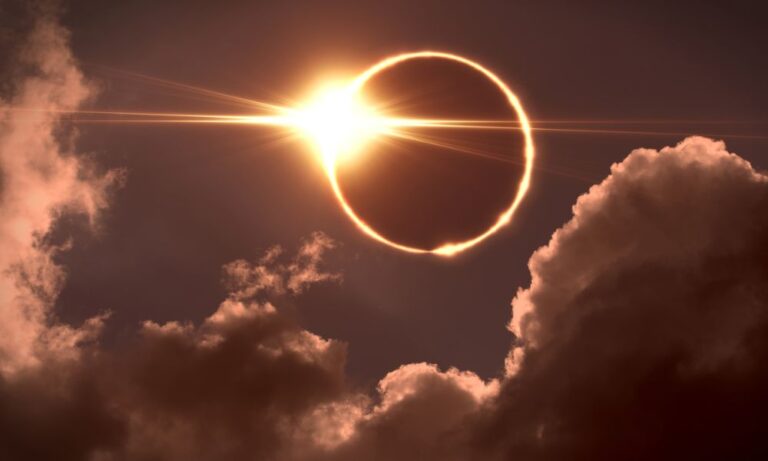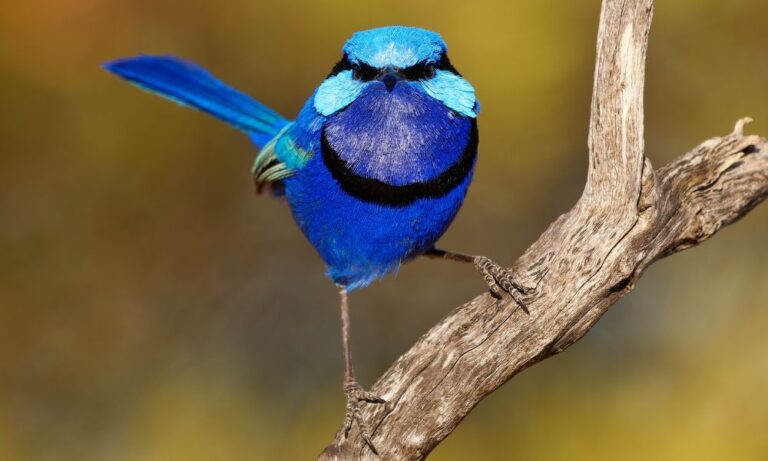In the war against rhino poaching, there is a new force. Created entirely of women – the Black Mambas is the latest weapon challenging poachers who dare to step foot inside the Greater Kruger national park.
The Mambas were formed after Craig Spencer, ecologist and head warden of the Balule nature reserve, a private reserve within Kruger, sought to employ teams of game guards from villages in the surrounding borders.
In a bid to engage communities outside the park and combat the reasons why some locals turn to the lucrative pursuit of poaching, to make ends meet, Spencer hired 26 local unemployed female high-school graduates. These women were then put through an intensive combat training program and fitted out with second hand military garb.
The group is provided with extensive tracking and bushcraft training so they are fit to patrol the reserve. Whilst not all the women are armed, some are now being provided with firearms, which assists in their fight against dangerous poachers – who are themselves heavily armed.
With rhino horns now being worth more than they ever have been, the animals could be facing extinction in under ten years.
Since 2004, poaching levels have exploded. In 2014 alone, 1,215 rhinos were killed in South Africa. Between 2007-2014, rhino poaching in the country has increased by a staggering 7000 percent.
Leitah Michabela has been working as a Black Mamba game guard for the last two years. “Lots of people said, how can you work in the bush when you are a lady? But I can do anything I want.”
These women are no stranger to the realities of poaching. They see many of their community members fall victim to the lure of poaching.
“We understand the whys and the hows of poaching. We understand how hard it can be to resist the lure of killing a rhino for a horn that would bring in quick and large sums of money in a community that has such limited opportunities. A person who walks into a park, at night, avoiding armed protectors, to shoot a dangerous animal might seem a hero to some. Our lives, our work, exist as a living counter example,” says Mamba member NoCry Mzimba.
“While we understand why those around us may be driven to steal a piece of our living heritage, it is wrong and it is unacceptable — as wrong as the actions of those who trade and buy the result. Anyone who buys illegal-wildlife products becomes an active participant in the poaching crisis that is currently threatening not only rhinos, but elephants and many other species.”
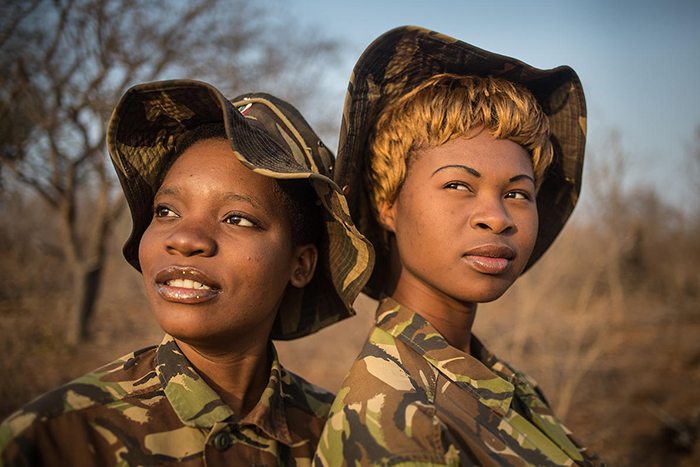
The job is arduous and demanding. The women patrol the 40,000 hectare reserve day in and day out, scouting for signs of poachers and disarming snares. Their approach is working. In the last 10 months the reserve hasn’t lost a single rhino, whilst the neighbouring reserve has lost 23.
The women remain committed to their cause, working tirelessly to provide a future for the beautiful animals they protect.
“I want my kids to see whatever I have seen, I don’t want them to hear there was a rhino,” Black Mamba Siphewe Sithole says of her two daughters. “I want them to experience it, to feel the nature, the love of nature.”


